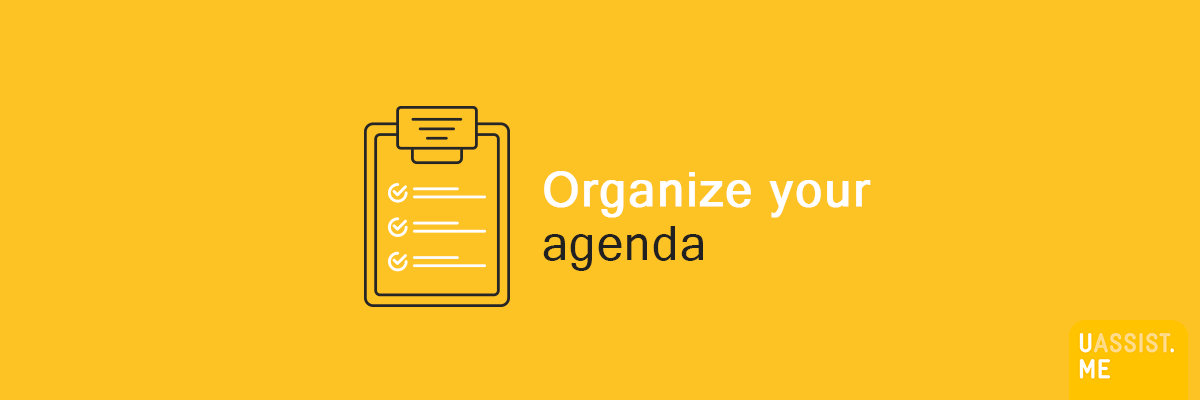
When you have a lot of things to do it’s really common to take some notes so you don’t forget any details and that’s one of the reasons why having an agenda is so useful. Writing everything you have to do in your agenda will help you organize your ideas, however, a whole page filled with pending things from top to bottom could make you feel frustrated, stressed or even worried.
Avoid saturating your agenda.
Organizing your agenda in an appropriate way is critical to make the most out of having one. You don’t know how to organize it? Here we show you one of the most effective ways to keep your agenda in order and be more efficient at work.
One of the best ways to organize your agenda is by dividing it into four different groups and categorize your tasks into four different sections:
Part 1: Urgent and important.
In this section, you should include all the tasks that must be completed as soon as possible and also the assignments that require your direct intervention or supervision. Most of the time this includes all the tasks that have a deadline or need to be completed immediately. It´s really important that you only include those tasks that have a crucial role in the rest of your daily activities.
Part 2: Not urgent but important.
This includes all those activities that don’t need to be completed immediately but are still really important. In this section, you can include those actions that you have as part of your daily routine. Keep in mind that even if an activity does not need to be completed on the day, it’s important that you do it. Otherwise these activities tend to accumulate and turn an easy task into a really difficult and long one.
Part 3: Urgent but not important.
In this section you have to place all the tasks that already have a deadline but that you don’t necessarily need to supervise personally. This way, you can visualize which activities you can delegate to another person and take them out from your To Do List. Keep in mind that you should be acquainted with the specific skills a person has before delegating a task to them.
Part 4: Not urgent, not important.
This section will include all those tasks that don’t need your attention. Take a couple of minutes and think about why they are in your agenda or what will happen if you don’t complete them. Consider if the elements in this list could be postponed or even deleted with no repercussions. In this area you could include your personal tasks or your daily unimportant things to do.
Organizing you agenda, learning how to say no, how to delegate tasks, and how to prioritize all your activities will reduce the activities in your To-Do List and allow you to have more time for yourself and be more efficient in the workplace.





